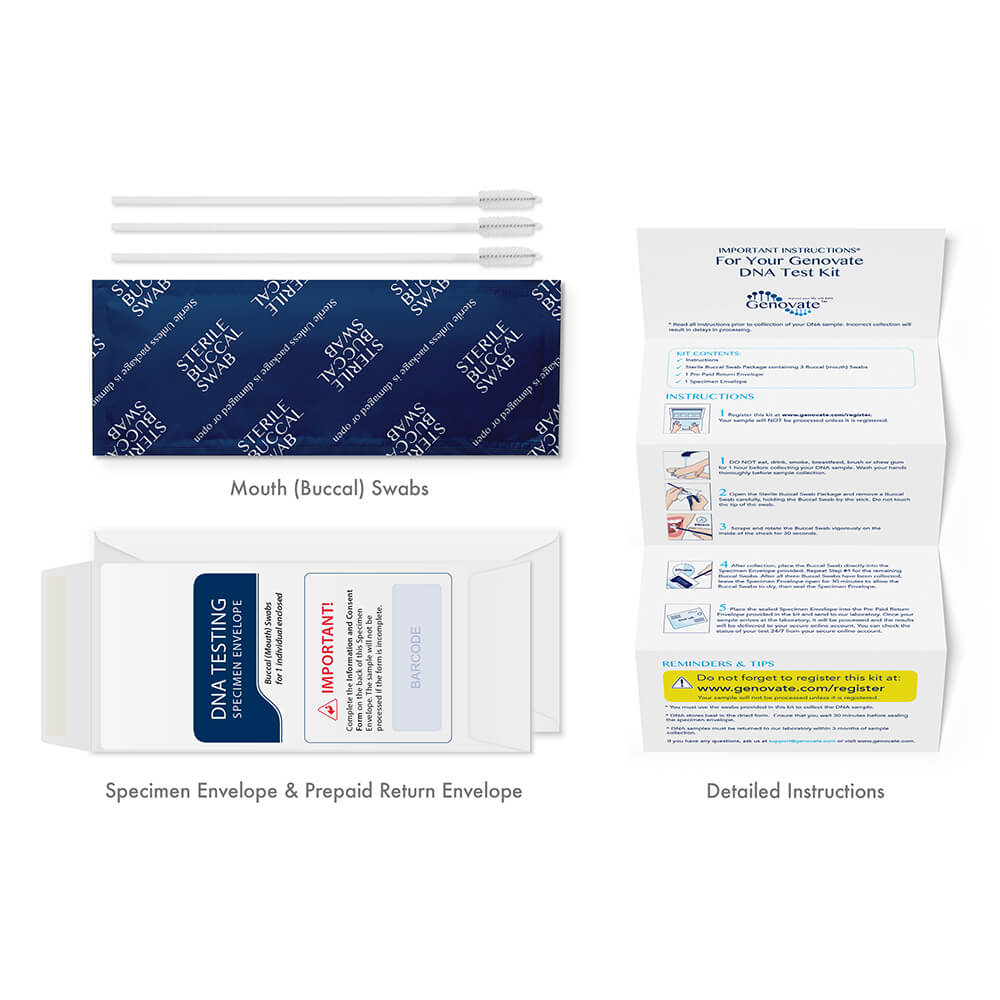Did your grandmother move in to a retirement home early after a painful hip fracture?
Was you grandfather affected by debilitating arthritis?
Are you getting enough vitamin D and calcium to keep your bones healthy?
Take this test to see whether you have inherited any genetic variants that compromise the health of your bones and joints.
Your bone health
Strong, healthy bones are important for providing structure, anchoring muscles and ligaments, protecting our internal organs and storing essential minerals. From birth until the age of 30, new bone is produced more quickly than old bone is broken down, reaching a peak bone mass at approximately 30 years of age. Bone remodelling continues throughout adulthood, but bone mass slowly decreases, as the old bone removal is quicker than new bone production. Poor bone growth as a child and greater than normal bone loss as an adult can contribute towards an increased risk of osteoporosis, a disease characterized by weak and brittle bones. Osteoarthritis is another common bone problem, characterized by decay in the protective cartilage within the bone joints.
What factors affect your bone health?
- Genetic variation explains up to 85% of bone mineral density
- Gender: Females generally have lower bone mass
- Menopause: Decreasing estrogen increases osteoporosis risk
- Testosterone: Lower testosterone results in a lower bone mass
- Ethnicity: Hispanics and African Americans have higher bone mass and
reduced osteoporosis risk (compared to Caucasians and Asians) - Physical activity: Weight-bearing exercises help strengthen bones
- Medications: Long-term use can reduce bone mass (e.g. corticosteroids)
- Nutrition: Reduced calcium and vitamin D uptake results in brittle bones
Knowledge of your genetic variants that contribute to bone health allows you to make changes today to avoid bone health complications later in life.
What is osteoporosis?
Osteoporosis is a common disease affecting the elderly. It is characterized by low bone mass and the deterioration of bone tissue. Affected individuals have weak, porous and brittle bones and are susceptible to bone fractures, particularly in the hip, spine or lower arm, often with only minimal trauma. It is known as “the silent thief”, as there are no symptoms of bone loss until a painful fracture occurs. Osteoporosis becomes more common with age, and fractures from osteoporosis are more common than heart attack, stroke and breast cancer combined.
What is osteoarthritis?
Osteoarthritis is a joint disease, due to the breakdown of cartilage within the joints and the surrounding bone tissue. Affected individuals suffer from joint swelling, pain and reduced joint motion. Commonly affected joints are in the hands, lower back, hips and knees.
Genetic variants affecting bone health
An understanding of your genetic susceptibility can allow you to implement strategies early to delay the onset of bone health complications and reduce the severity of bone loss. This test identifies genetic variants in these five genes:
- CYP2R1 – Increases the risk of vitamin D deficiency, leading to reduced absorption of calcium. Adequate calcium is essential for healthy bones.
- GC – Increases the risk of vitamin D deficiency and reduced absorption of calcium.
- WNT16 – Increases the risk of reduced bone formation.
- GDF5 – Affects the normal regulation of the maintenance, development and repair of bones, joints and cartilage.
- COL1A1 – Affects the formation of collagen (an essential strength and structural component of bones).
Three Easy Steps
Step 1: Order test kit online
Step 2: Collect DNA sample using a painless mouth swab, and mail to the lab in the provided return envelope
Step 3: Receive your results online
Click here for more details and to watch our explanatory video.
| Benefits |
|---|
| ✓ Understand your genetic risk of osteoporosis and osteoarthritis |
| ✓ Make changes today to improve your bone health |
| ✓ Painless buccal (mouth) swab sample collection |
| ✓ All tests are run 2x for absolute accuracy |
| ✓ Quickly collect samples in the privacy of your own home |
| ✓ 24/7 online test status check |
| ✓ Discreet online results option available |
| ✓ No age limit |
| ✓ State-of-the-art accredited testing laboratory |
Related products
Health & Disease
Quickly determine your optimum warfarin dose.
Health & Disease
Determine if your genes increase your risk of narcolepsy.
Health & Disease
Determine whether you carry the APOE genetic variant linked to cardiovascular disease.
Health & Disease
Determine your genetic risk for dangerous blood clots.
Health & Disease
Understand your genetic risk of type 2 diabetes.
Health & Disease
Determine if you carry the genes linked to iron overload.
Health & Disease
Understand your genetic risk of cardiovascular disease.
Health & Disease
Understand your risk of late-onset Alzheimer's disease.
























